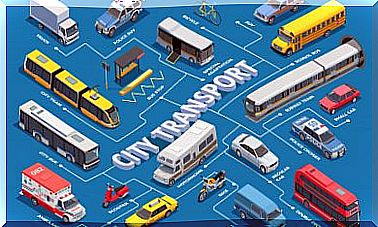Legal Aspects Regarding Children Of Legal Age

In recent years there have been some cases of children of legal age who have brought their parents to justice to demand the payment of alimony. And there have also been, on the contrary, cases of parents who have gone to court for the same reason: requesting the extinction of the obligation of alimony for their children of legal age.
These somewhat extreme situations are the reflection of a new world reality from which Spain is not exempt. It is about the appearance of the so-called ‘ninis’: adult children who neither work nor study. The phenomenon is the result of a difficult economic reality that makes it more expensive and difficult for children to leave home and become independent.
This type of situation also causes parents to carry a heavy load for much longer. Next, we will see some legal aspects about children of legal age.
Legal concepts
The article 39.3 of the Spanish Constitution establishes the obligation of parents to provide assistance of all kinds to children born in or out of marriage, during his minority and in other cases legally applicable.

Regarding parental authority, article 154.1 of the Spanish Civil Code provides that minor, non-emancipated children are under the parental authority of their parents. Parental authority is a parental responsibility that must always be exercised with the highest interest of the children in mind.
The same article establishes that parental authority includes some rights and obligations. Parents have, for example, the obligation to look after their children, keep them in their company, feed them, educate them and provide them with comprehensive training.
In case of separation or divorce of the parents, a judge will determine the contribution of each parent to satisfy these needs that are known as alimony.
Parental authority and legal age
When the children turn 18, the parental authority or guardianship of the parents over them ends. That is, the set of rights and obligations that parents have over minor children, in a personal and patrimonial sense, expire.
However, there are some exceptions. One of them is that of legally emancipated children, in which case parental authority ends at the time of emancipation, even if the children are minors. It may also happen that parental authority extends beyond 18 years of age, in the event that the children have been declared incapable.
Is there an obligation to provide maintenance to children of legal age?
The law establishes the age of majority as the limit to exercise parental authority but, in practice, parents continue to have many obligations to their children after that age. In this way, the obligation of parents to provide food, care and protection to their children ends when they reach their economic independence.

Today, young people have many difficulties to become independent and live with their parents much longer, so that the obligation of parents extends well beyond the age of 18.
And this obligation is protected by law. This means that an adult child who still lives with his parents and is not financially independent can claim in court if his parents no longer want to support him.
When can children of legal age claim alimony from their parents?
The legislation establishes that children of legal age continue to maintain their right to alimony if they remain in a situation of need. However, there are some elements to consider.
On the one hand, this situation of need should not be attributable to the child of legal age. In other words, this need should not be the product of irresponsible behavior by the child himself.
In the event of disputes that come before the courts, the judges will consider whether the children have actively sought work or are continuing to train. For a judge to determine that a child of legal age continues to be entitled to the obligation of maintenance by his parents, he must show that he has done everything possible to overcome his precarious situation.










